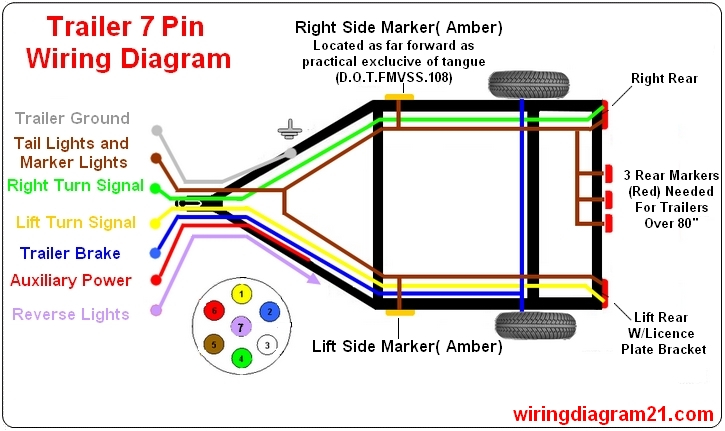Mastering Electric Trailer Brakes: A Comprehensive Guide
Towing a trailer can be a daunting task, especially if you're unfamiliar with its braking system. Imagine descending a steep incline with a heavy load behind you – a scenario where reliable brakes are paramount. This is where electric trailer brakes come into play, offering a significant safety advantage over surge brakes, especially for heavier trailers. But how do electric trailer brakes work, and why are they so important?
Electric trailer brakes provide a more immediate and controlled braking experience compared to surge brakes. Unlike surge brakes, which rely on the momentum of the trailer pushing against the tow vehicle to activate, electric trailer brakes engage in sync with the tow vehicle's brakes. This synchronized braking reduces stopping distances, minimizes sway, and enhances overall control, particularly in challenging conditions like slippery roads or steep descents. This precise control translates into a safer and more confident towing experience.
The core of an electric trailer braking system lies in its electronic components. A brake controller, installed in the tow vehicle, sends an electrical signal to the brakes on each wheel of the trailer. These brakes, often drum brakes or increasingly popular disc brakes, use electromagnets to activate the braking mechanism. When the driver applies the tow vehicle's brakes, the controller sends a proportional signal to the trailer brakes, ensuring they engage with the same intensity as the tow vehicle’s brakes.
Understanding the history and evolution of trailer braking systems provides context for the importance of electric brakes. Early trailers relied on rudimentary mechanical braking systems, often requiring manual intervention. As trailers became larger and heavier, the need for more robust and responsive braking systems led to the development of surge brakes and, eventually, electric brakes. The superior control and safety offered by electric brakes have made them the preferred choice for many towing applications, especially for heavier trailers or those used in mountainous terrain.
One common issue with electric trailer brakes is improper adjustment. Over time, brake shoes wear down, requiring periodic adjustments to maintain optimal braking performance. Another potential problem lies in the electrical connection between the tow vehicle and the trailer. A faulty wiring harness or a corroded connector can disrupt the signal to the brakes, compromising their effectiveness. Regular maintenance and inspections are essential to address these potential issues and ensure the reliability of the electric braking system.
Electric trailer brakes offer several benefits. First, they improve safety by reducing stopping distances and enhancing control. Second, they provide smoother braking, minimizing jerky movements and potential sway. Third, they offer better performance on steep grades, allowing for more controlled descents.
Advantages and Disadvantages of Electric Trailer Brakes
| Advantages | Disadvantages |
|---|---|
| Superior Braking Control | Higher Initial Cost |
| Reduced Stopping Distances | More Complex Installation |
| Minimized Trailer Sway | Requires Brake Controller |
Best Practices for Electric Trailer Brake Maintenance:
1. Regularly inspect the wiring harness and connectors for damage or corrosion.
2. Adjust the brakes periodically to compensate for brake shoe wear.
3. Test the brakes before each trip to ensure they are functioning correctly.
4. Consult a qualified technician for any repairs or troubleshooting.
5. Ensure your brake controller is compatible with your trailer's braking system.
Frequently Asked Questions:
1. What is the difference between electric and surge brakes? Electric brakes offer superior control and are activated in sync with the tow vehicle's brakes, while surge brakes rely on the momentum of the trailer.
2. Do I need a special brake controller for electric brakes? Yes, a brake controller is required to send the electrical signal to the trailer brakes.
3. How often should I adjust my electric trailer brakes? Adjustment frequency depends on usage, but it's generally recommended to check them annually or more frequently with heavy use.
4. Can I install electric brakes myself? While possible, professional installation is recommended to ensure proper wiring and functionality.
5. What are some common problems with electric trailer brakes? Common issues include faulty wiring, corroded connectors, and improperly adjusted brakes.
6. How do I test my electric trailer brakes? You can test the brakes by manually activating the controller while observing the trailer wheels.
7. Are electric trailer brakes required by law? Requirements vary by state and trailer weight; consult your local regulations.
8. What type of maintenance do electric trailer brakes require? Regular inspection of wiring, periodic brake adjustments, and occasional professional checks are recommended.
Tips and Tricks for using electric trailer brakes: Practice braking in a safe, open area to get a feel for the system's responsiveness. Be mindful of the added weight of the trailer when braking, and allow for increased stopping distances. Understand the functions of your brake controller and how to adjust the braking intensity.
In conclusion, understanding how electric trailer brakes work is fundamental to safe and efficient towing. From their synchronized braking action to their enhanced control on steep grades, electric brakes offer significant advantages over traditional surge brakes, especially for heavier trailers. While the initial cost and installation might be slightly higher, the added safety and performance benefits make them a worthwhile investment. Regular maintenance and a thorough understanding of the system are essential to ensure the long-term reliability and effectiveness of your electric trailer brakes. By following the best practices outlined in this guide and addressing potential issues proactively, you can confidently tow your trailer, knowing that you have a reliable and responsive braking system at your disposal. Remember, safety should always be the top priority when towing, and investing in a well-maintained electric braking system is a crucial step in ensuring a safe and enjoyable towing experience. Take the time to familiarize yourself with your specific system and consult a professional if you have any questions or concerns.
Decoding sage gray the ultimate guide to this trending hue
Upgrade your space with sherwin williams monorail silver
Cimb branch near me solve your banking needs now














